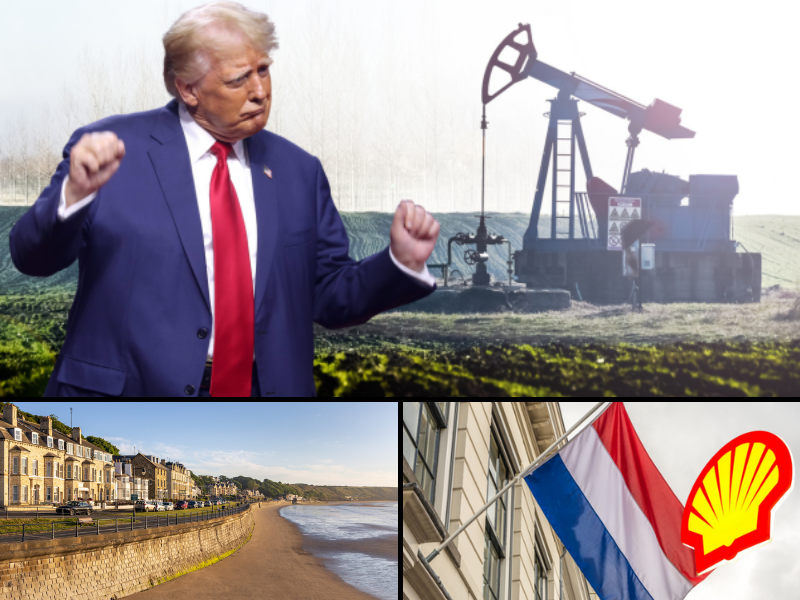America’s entrepreneurs and venture capitalists are passing up a chance to earn billions of dollars by investing in technologies to reduce California’s greenhouse gas (GHG) emissions. The only way to overcome business people’s stubborn refusal to get rich is for California policymakers to adopt mandatory GHG controls.
That’s the conclusion of California Gov. Arnold Schwarzenegger’s Climate Action Team, according to an April report to the governor, and of researchers at the University of California at Berkeley Climate Change Center in an August report, “Economic Growth and Greenhouse Gas Mitigation in California.”
The UC-Berkeley experts claim meeting the governor’s GHG reduction target–a 25 percent reduction in GHG emissions by 2020 when compared with a “business-as-usual” projection–would increase California’s economic output by $74 billion per year, or more than $1,700 per person.
If that’s true, then reducing GHGs would create tremendous wealth in and of itself, and society should be eager to do so regardless of how concerned we are about human-induced climate change.
Ridiculous Inconsistencies
To put it another way, climate activists are claiming businesses and investors are senselessly missing out on tens of billions of dollars in profits by failing to invest in energy efficiency and other GHG-reducing technologies.
The activists are claiming to know better than businesses and investors how they should spend their money. The activists even have university scientists with sophisticated computer models of California’s economy to “prove” it. And they’re going to get the government to make sure the rest of us start acting in our own self-interest, whether we like it or not.
If that doesn’t already sound ridiculous, consider that even the UC-Berkeley researchers themselves hint at the inherent inconsistencies in their logic. Their report concludes, “California’s GHG targets are attainable, but too ambitious to be met by voluntary initiative.” Hmm. You would think an upside of $74 billion per year would stimulate stupendous amounts of “voluntary initiative.”
Fuel Economy Fairy Tales
Automobile fuel economy is another area where the government steps in to make sure Americans do what’s supposedly in our own best interests. It is an article of faith among policy elites that requiring automakers to increase the gas mileage of the cars they sell would make motorists better off by reducing fuel costs. Just as with California’s GHG emissions plan, the claim is that higher fuel economy is in our self interest and would be a good thing even if we weren’t worried about climate change or dependence on oil from unstable or odious regimes.
So how do we explain the fact that Americans continue to drive gas guzzlers? According to Congressman Sherwood Boehlert (R-NY), the problem is the auto manufacturers: “The goal of fuel economy standards is to enable Americans to drive the cars they want but that the automakers aren’t producing.” Boehlert would have us believe that he knows more than automakers about what combination of price, performance, and features would be most attractive to prospective car buyers.
The Natural Resources Defense Council (NRDC) goes further, claiming automakers are actively working against the desires of their customers by “withholding fuel-efficient technologies.” According to the NRDC, “If Detroit would build [fuel-efficient cars], buyers would come.”
In NRDC’s fantasy world, automakers, who are in cutthroat competition for market share, can entirely dictate to people what kinds of cars they will buy. And they’re using that power to build cars that are unnecessarily expensive to operate, even though they could provide more fuel-efficient cars at the same price.
Differing Priorities
The activists have it exactly backwards.
Consumers are in the driver’s seat when it comes to fuel economy. They can choose from any of a few dozen automobile models that get more than 30 miles per gallon. But according to EPA’s latest fuel-economy report, for the 2006 model year new-car buyers chose models that averaged just 21 miles per gallon–about the same as in previous years.
Thus, even as the price of gasoline has doubled, fuel economy remains a minor factor in motorists’ automobile purchase decisions.
That’s not to say motorists wouldn’t prefer greater fuel economy, all other factors being equal. It’s just that they are willing to make only modest concessions on other priorities such as leg room, seating capacity, and cargo space in order to get it. If there’s a problem here, it’s not that motorists don’t know what they want; it’s that environmentalists and their allies want to override Americans’ preferences.
Propaganda Wars
Unfortunately, the activists have been successful in spreading their propaganda in much of the country. Although California is still considering whether to cap industrial GHG emissions, the Golden State has already adopted GHG emission limits for automobiles–essentially fuel economy requirements by another name–that go into effect starting in 2009. Other states have followed California’s lead.
And just as in the current debate over industrial GHGs, policymakers have claimed the automotive GHG requirements will benefit consumers by reducing gasoline costs. The California Air Resources Board (CARB) went so far as to claim the net benefits to motorists would total $1,700 per automobile as a result of gasoline savings over the vehicle’s useful life.
But this figure is just as imaginary as the $74 billion savings claimed by the UC-Berkeley researchers. If it were possible to reduce the cost of purchasing and operating an automobile by $1,700, and to do so without sacrificing comfort, safety, or carrying capacity, then automakers would already be doing it in order to get a leg up on their competitors.
If reducing greenhouse gas emissions would make each of us better off in addition to its alleged effect on global temperature, we wouldn’t have to worry about the reliability of climate change predictions. Likewise, if requiring improved fuel economy would make automobile use more economical without any tradeoffs, we would not have to think as hard about the relative risks and benefits of importing petroleum or sacrificing vehicle size in order to save on gasoline.
That helps explain why activists have been so anxious to convince us of these false claims. If they can convince people that GHG reductions confer net benefits on their own terms, then they can avoid the more difficult task of convincing people of the merits of their real energy-rationing agenda.
Joel Schwartz ([email protected]) is a visiting fellow at the American Enterprise Institute.



